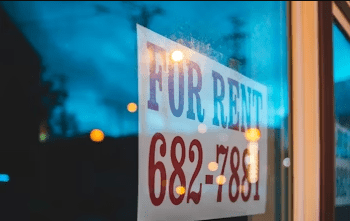The relationship between tenants and landlords can sometimes become strained due to differing expectations and obligations. From maintenance disagreements to issues over lease terms, disputes can arise for various reasons.
Understanding how to address these conflicts effectively can make the rental experience smoother for both parties. This article explores common disputes and provides actionable solutions to resolve them amicably.
Maintenance Responsibilities and Repair Delays
One of the most frequent sources of friction between tenants and landlords revolves around maintenance. Tenants expect landlords to address issues promptly, especially those affecting health and safety, such as plumbing leaks, broken heating systems, or pest infestations. On the other hand, landlords may feel tenants are unreasonable with their demands or that some issues are the tenant’s responsibility.
To resolve this, both parties should refer to the lease agreement, which typically outlines maintenance responsibilities. Tenants should document all issues in writing, providing detailed descriptions and photographs where necessary. For landlords, timely communication and a clear repair timeline can prevent frustration from escalating.
In cases where repairs are delayed beyond a reasonable timeframe, tenants may need to explore legal options like rent withholding laws to determine their rights while staying compliant with state regulations.
Security Deposit Disputes
Disagreements over security deposits are another common issue. Tenants often feel that deductions made from their deposit are unfair, while landlords may argue that repairs or cleaning were necessary due to the tenant’s actions. Clear communication and documentation are crucial in these cases.
Before moving out, tenants should conduct a walkthrough of the property with the landlord and address any concerns about damages. Providing receipts for professional cleaning or repairs can further support a tenant’s case.
Landlords, in turn, must itemize deductions clearly and return the remaining deposit within the legally mandated timeframe. To avoid future conflicts, both parties should conduct a thorough move-in inspection and document the property’s condition with photographs and written records.
Rent Payment Issues
Timely rent payment is a fundamental part of the tenant-landlord agreement. However, circumstances such as financial difficulties, confusion over payment methods, or disputed late fees can lead to disputes.
To address this, tenants should communicate proactively if they anticipate challenges with paying rent on time. Landlords, meanwhile, can offer flexibility by providing a payment grace period or discussing installment options. If disputes over late fees arise, both parties should review the lease terms and local rental laws. Establishing automated payment systems can also reduce misunderstandings and streamline transactions.
Disputes Over Lease Violations
Lease agreements are designed to protect both tenants and landlords, but disputes can arise when one party believes the other has violated the terms. Common issues include unauthorized pets, subletting, or improper use of the property.
For tenants, understanding the lease thoroughly before signing is essential. If disagreements occur, they should attempt to negotiate directly with the landlord and clarify the situation. Landlords should document all alleged violations and give tenants a chance to remedy the issue before pursuing legal action. Mediation can also help resolve disputes, fostering a neutral environment for discussion and compromise.
Privacy and Access Disputes
Tenants are entitled to privacy in their rental property, while landlords have the right to access the unit for specific purposes, such as repairs or inspections. Disputes arise when tenants feel their privacy is being violated or landlords believe they are being denied reasonable access.
To avoid conflicts, landlords should always provide advance notice before entering a tenant’s property, adhering to local laws about required notice periods. Tenants, on their part, should accommodate reasonable requests for access. Both parties should maintain open communication to balance the tenant’s privacy with the landlord’s property rights.
Resolving Disputes Through Mediation
When communication breaks down, disputes can escalate to legal proceedings, which are often expensive and time-consuming. Mediation provides a cost-effective and amicable alternative, allowing both parties to present their concerns to a neutral third party.
Mediators are trained to help tenants and landlords reach mutually agreeable solutions without the need for court involvement. Many states and local housing authorities offer mediation services for rental disputes, providing a structured process to address grievances. Mediation not only saves time and money but also preserves the tenant-landlord relationship, making it a preferable option for most conflicts.
Preventative Measures for Both Tenants and Landlords
Preventing disputes begins with a well-drafted lease agreement that clearly outlines rights and responsibilities. Tenants should read the lease carefully before signing and ask questions if any terms are unclear. Landlords, on the other hand, should keep their lease agreements up to date with local laws and ensure the language is transparent.
Regular communication is another key preventative measure. Tenants should report maintenance issues promptly, while landlords should provide regular updates on repairs or policy changes. Establishing a professional relationship based on mutual respect can reduce the likelihood of conflicts and create a positive rental experience for everyone involved.
When Legal Action Becomes Necessary
Despite best efforts, some disputes may require legal intervention. In such cases, both tenants and landlords must understand their rights and responsibilities under local housing laws. For tenants, this may involve filing complaints with housing authorities or pursuing legal action for unresolved maintenance issues. Landlords, on the other hand, may need to initiate eviction proceedings for non-payment of rent or other serious lease violations.
Before resorting to legal action, both parties should exhaust all other options, including direct negotiation, mediation, and consulting housing authorities. Legal proceedings should be viewed as a last resort due to their cost, time commitment, and potential impact on future housing arrangements.
All in all, disputes between tenants and landlords are an inevitable part of rental agreements, but they don’t have to lead to hostility or legal battles. By maintaining clear communication, documenting all interactions, and understanding the relevant legal framework, both parties can address conflicts effectively.
Whether it’s navigating maintenance concerns, understanding property laws, or resolving security deposit issues, a proactive and respectful approach can make a significant difference. By fostering cooperation and mutual respect, tenants and landlords can create a harmonious rental experience.










